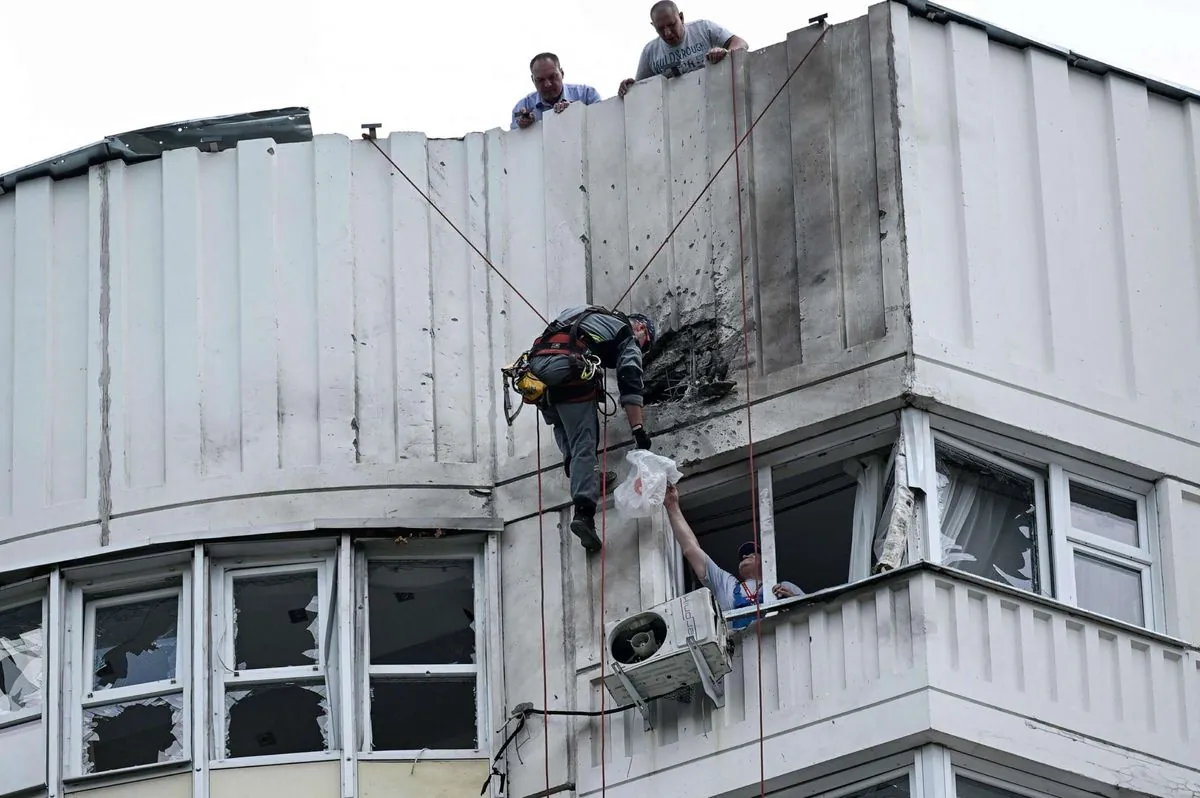On September 10, 2024, a significant Ukrainian drone operation targeted Moscow and eight additional Russian regions, resulting in the first civilian casualty in the capital since the conflict began. This event marks a notable escalation in the ongoing hostilities between Russia and Ukraine, which started with Russia's full-scale invasion in February 2022.
Sergei Sobyanin, Moscow's mayor, reported that at least 14 drones were intercepted in and around the city. The attack led to the temporary closure of three major airports: Zhukovsky, Vnukovo, and Domodedovo, disrupting air travel and potentially impacting the region's economy. Airport closures can have significant ripple effects on trade and commerce, highlighting the broader consequences of such attacks.
The most severe impact was felt in Ramenskoye, a town approximately 18 miles from Moscow, where a drone struck a residential apartment building. The incident resulted in the death of a 46-year-old woman and injuries to twelve others, with one person in serious condition. Andrei Vorobyov, governor of the Moscow region, stated that over half of the 102 apartments in the affected building on Sportivny Proezd suffered damage. A second residential building on Vysokovoltnaya Street was also hit, causing one injury.
Russia's Ministry of Defense claimed that the operation involved at least 144 drones across the country, with the majority reportedly shot down. The Bryansk region, bordering both Ukraine and Belarus, was particularly hard-hit, with over 70 drones allegedly intercepted. This region's strategic location makes it a significant target in the conflict.
Ukraine's strategy in these attacks appears to be aimed at bringing the reality of the war closer to Russian civilians, potentially increasing domestic pressure on the Kremlin. However, Kyiv faces limitations in its ability to strike deep within Russia, relying primarily on drones due to restrictions on using Western-supplied missiles for such operations.
"Alas, such strikes will be repeated and will increase in number. It is necessary for the real subject of aggression against Russia, Western countries, to feel at least some damage."
This statement reflects the ongoing narrative from Russian officials framing the conflict as Western aggression against Russia, despite the fact that Russia initiated the full-scale invasion of Ukraine.
The attack on Moscow follows a recent trend of Ukrainian operations targeting Russian oil infrastructure. On September 1, 2024, a drone strike hit the Moscow Oil Refinery in Kapotnya district, causing a fire. These attacks have reportedly impacted Russian oil refinery production by up to 15-20% earlier in the year, although many facilities have since resumed operations after repairs.
The conflict continues to exact a heavy toll on both sides. British intelligence estimates suggest that Russian forces may be suffering more than 1,000 casualties daily, with a total of around 610,000 Russian soldiers killed or wounded since the war's inception. However, discussion of these losses remains limited within Russia due to strict laws criminalizing criticism of the war and military.
As the conflict persists, the use of drones in warfare raises new ethical and legal questions in international law. The targeting of civilian areas, whether intentional or not, is prohibited under international humanitarian law. Both sides have accused each other of such violations, with Russia denying targeting civilians in Ukraine while labeling Ukrainian attacks on Russian soil as "terrorism."
The ongoing drone attacks and their consequences underscore the evolving nature of modern warfare and the challenges in protecting civilian populations in conflict zones. As the situation develops, the international community continues to grapple with the broader implications of this protracted conflict on regional stability and global security.
